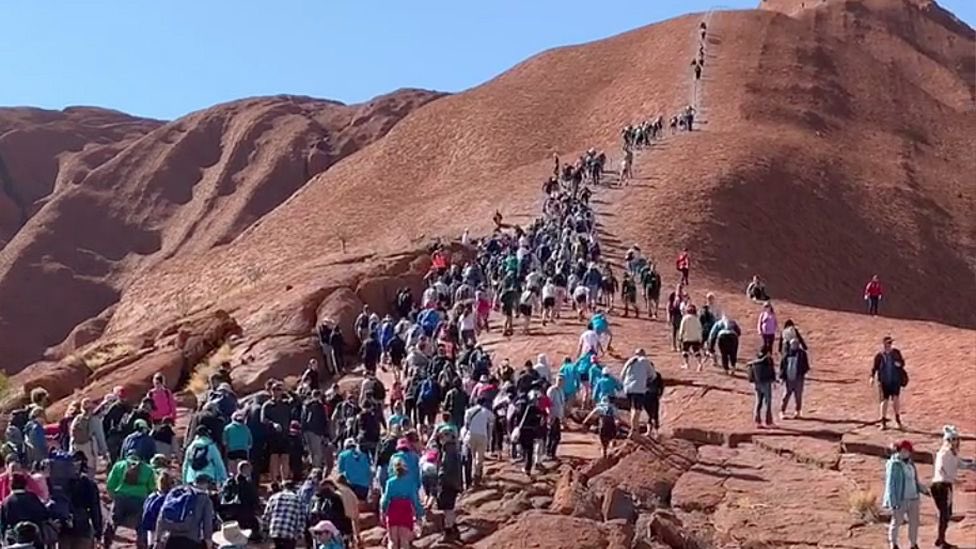Travel is the most visible manifestation of a much deeper cultural problem. You can trace it even into science and Covid action, where more than a century after quantum mechanics upended the relationship between knower and known, it still hasn’t sunk in. /1 

The fundamental message from quantum mechanics was that ‘to know’ was to change the world you were knowing. The idea of subjects observing objects was over. Of reality being this ‘objective’ thing existing independently of humans. Not the end of reality or truth. /2 

The replacement of a a binary of subject and object, with a *relational* idea of truth. Not relativism, relationism. The truth is contextual, relational with our means of knowing. So travel? It’s the most everyday, visible manifestation of the denial of that shift. /3
We travel to ‘see’ places’, or to ‘experience’ them. But our travel CHANGES those places. The thing we go to see is altered and even destroyed, by us being there to see it. Like people travelling to the Australian outback to see ‘one of the world’s last untouched places’. /4 

Except if we all travel to see that, it stops being one of the world’s most untouched places. There is no way to fix this paradox, and like all paradoxes it points to a fundamental misunderstanding of how something is framed. To continue with travel as an example. /5 

The Vienna you imagine is more real than the Vienna you visit. The image we have of distant places is always going to be more true to life than ‘being there’. When go there, the fact you’re not a part of that place, it’s not your home, creates a distance you can’t remove. /6 

These are the paradoxes not looking at the underlying belief system leads us into. Living somewhere is a dynamic, interactive relationship. Not a subject looking at an object, which is what tourism is. People try to get around this by some version of going native. /7
By seeking out the non-tourist places to see. Which infuriates the locals, who then have tourists not only in the tourist zones, but also in all of their local places they kept for themselves. You can’t defeat that distance, unless you move there permanently. /8
But then that isn’t travel. It’s emigration. You can’t have your cake and eat it as well. And I think we’ve seen this same cultural blind spot with the pandemic. The great lockdown vs opening up non-debates. The idea that being in our homes is a type of oppression. /9
Of course we’re going to think that, we’re used to trashing the homes of others as recreation, it’s our greatest passion. Zoonotic viruses are themselves generated by the destruction of the homes of other living things. Pandemics are a cultural artefact, we don’t see it. /10 

It’s our refusal to be grounded, anywhere, that both creates and sustains pandemics. Moves the pathogens around, and generates them in the first place by ripping apart ecosystems that held different organisms in check, in finely balanced semi-equilibria. /11
The travel industry was of course a hugely powerful and dominant agitator for the removal of public health protections. The world is exploding with tourists right now, their ‘pent up demand’ to get back to trashing other peoples’ homes had to be satisfied. /12
From countries that don’t even make it possible for their own citizens to now own a roof over their own heads. The true story of this pandemic is a socio-cultural one. We’re still those old imperial cultures, accumulating places and resources. /13
abc.net.au/news/2023-07-0…
abc.net.au/news/2023-07-0…
We democratised that a bit, now everybody can do it, hop on a plane and accumulate their own ‘grand tour’ of sights. Meanwhile that empire virus works its way into our own countries now, dispossessing more and more of our own people from their land and homes. /14
It’s called an ‘economy’ now, but really it’s the old empire at work. In the past only poor countries suffered ‘endemic’ disease. Now our own leaders celebrate creating endemic disease locally. The economy respects no national borders, no geography of any kind. /15
In a ‘global market’ everybody is now those poor countries, it becomes a race to the bottom. We will all be forced to live with endemic disease, because that’s what we always did to other countries. All of the inequalities between nations are now *within* nations too. /16
All because we refuse to be grounded. We refuse to give up social media, and allow knowledge to be re-grounded in the institutions which generated it, because we love ‘travelling’ through knowledge as well, devoid of social context. Everything about our culture dispossesses. /17
There’s no trust, no leaving foreign sights alone to be just as they are, no leaving expertise to run other parts of our societies while we get on with our own jobs. Everything has to be displaced, mobilised. Locomotion is all that matters to us. More roads, more flights. /18 

Always moving, never arriving. Accumulating, sights and resources. Classic old empire behaviour, that’s our DNA. We can’t even stop a pandemic, because it would restrict the capacity to drive people from their places, their homes. No ‘work from home’! Home is forbidden. /19
To end the pandemic, to end climate change, and to end most of our most difficult social problems, we need to understand again what home means. Aboriginal Australians have been trying to say that for over 200 years. /end
• • •
Missing some Tweet in this thread? You can try to
force a refresh

 Read on Twitter
Read on Twitter





